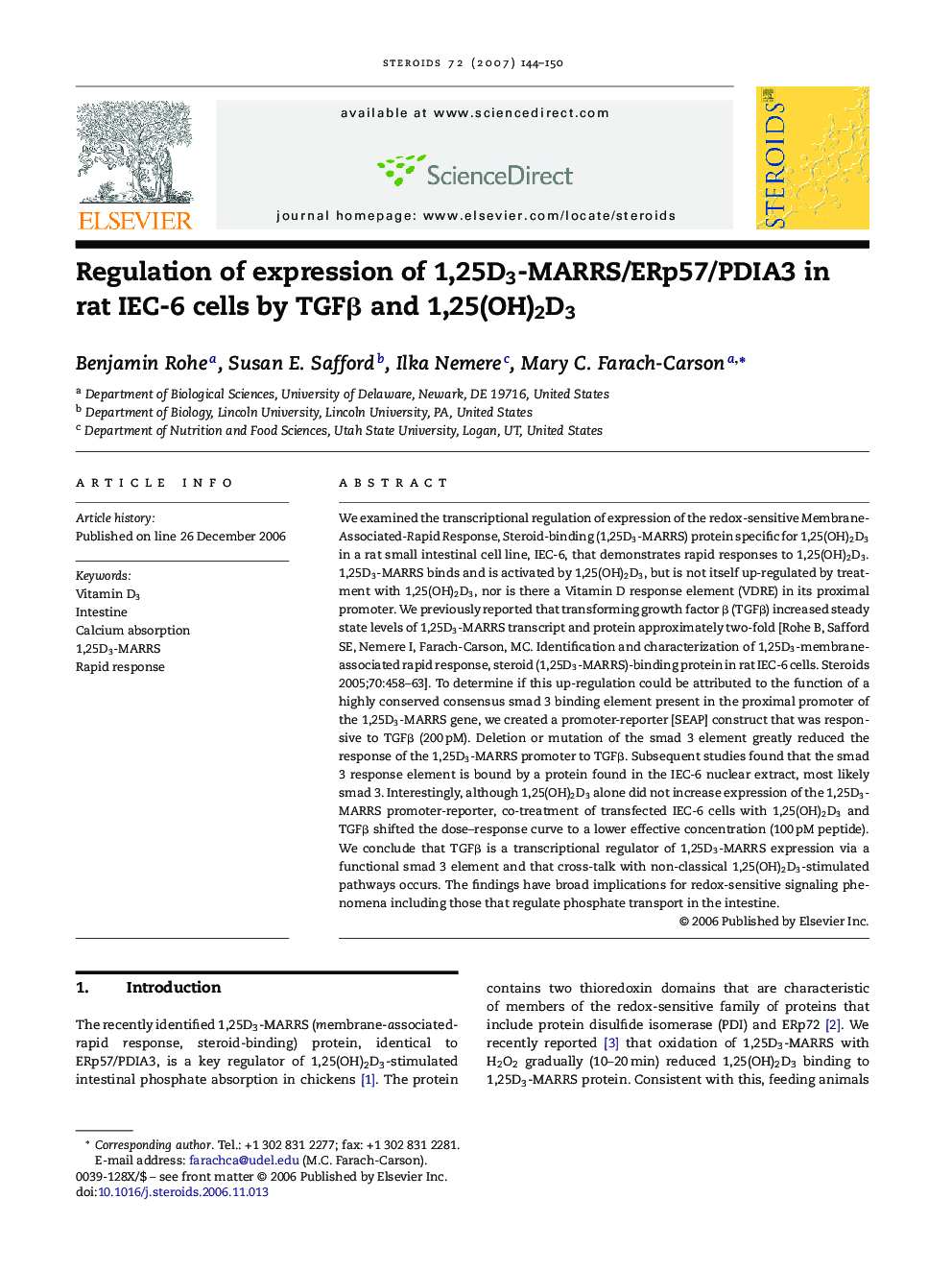| Article ID | Journal | Published Year | Pages | File Type |
|---|---|---|---|---|
| 2028836 | Steroids | 2007 | 7 Pages |
Abstract
We examined the transcriptional regulation of expression of the redox-sensitive Membrane-Associated-Rapid Response, Steroid-binding (1,25D3-MARRS) protein specific for 1,25(OH)2D3 in a rat small intestinal cell line, IEC-6, that demonstrates rapid responses to 1,25(OH)2D3. 1,25D3-MARRS binds and is activated by 1,25(OH)2D3, but is not itself up-regulated by treatment with 1,25(OH)2D3, nor is there a Vitamin D response element (VDRE) in its proximal promoter. We previously reported that transforming growth factor β (TGFβ) increased steady state levels of 1,25D3-MARRS transcript and protein approximately two-fold [Rohe B, Safford SE, Nemere I, Farach-Carson, MC. Identification and characterization of 1,25D3-membrane-associated rapid response, steroid (1,25D3-MARRS)-binding protein in rat IEC-6 cells. Steroids 2005;70:458-63]. To determine if this up-regulation could be attributed to the function of a highly conserved consensus smad 3 binding element present in the proximal promoter of the 1,25D3-MARRS gene, we created a promoter-reporter [SEAP] construct that was responsive to TGFβ (200 pM). Deletion or mutation of the smad 3 element greatly reduced the response of the 1,25D3-MARRS promoter to TGFβ. Subsequent studies found that the smad 3 response element is bound by a protein found in the IEC-6 nuclear extract, most likely smad 3. Interestingly, although 1,25(OH)2D3 alone did not increase expression of the 1,25D3-MARRS promoter-reporter, co-treatment of transfected IEC-6 cells with 1,25(OH)2D3 and TGFβ shifted the dose-response curve to a lower effective concentration (100 pM peptide). We conclude that TGFβ is a transcriptional regulator of 1,25D3-MARRS expression via a functional smad 3 element and that cross-talk with non-classical 1,25(OH)2D3-stimulated pathways occurs. The findings have broad implications for redox-sensitive signaling phenomena including those that regulate phosphate transport in the intestine.
Related Topics
Life Sciences
Biochemistry, Genetics and Molecular Biology
Biochemistry
Authors
Benjamin Rohe, Susan E. Safford, Ilka Nemere, Mary C. Farach-Carson,
